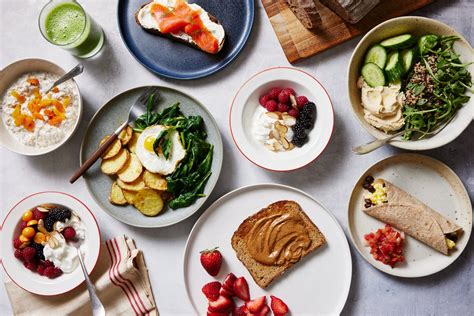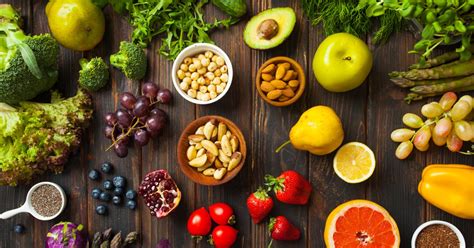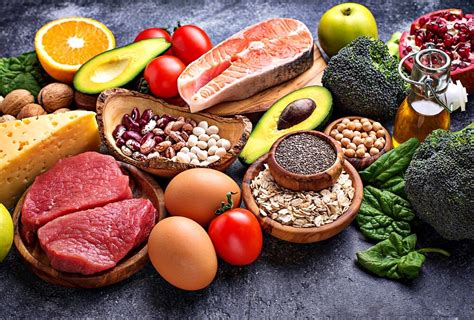Morning nutrition for peak focus, sustained energy & vitality?

Fueling Your Day: The Power of Morning Nutrition
The first meal of your day sets the stage for everything that follows. Beyond just satisfying hunger, a well-balanced morning meal is a critical determinant of your cognitive function, energy levels, and overall vitality. Skip it, or fill it with empty calories, and you risk a mid-morning slump, poor concentration, and a general lack of zest. But prioritize it, and you unlock the potential for peak performance, sustained energy, and a vibrant sense of well-being.
Understanding what to eat and why it matters can transform your mornings and, by extension, your entire day. Let’s delve into the core principles of morning nutrition that empower you to achieve optimal focus, steady energy, and a robust sense of vitality.
Why Morning Nutrition Matters for Brain and Body
After hours of sleep, your body and brain are in a fasted state. They’re depleted of glucose, their primary energy source, and require replenishment to function optimally. A nutritious breakfast does more than just break the fast; it kickstarts your metabolism, stabilizes blood sugar levels, and provides the essential building blocks for neurotransmitter production, which are crucial for mood and cognition.

Neglecting morning nutrition can lead to significant downsides, including reduced concentration, irritability, difficulty making decisions, and a greater likelihood of unhealthy snacking later in the day. Conversely, a thoughtful breakfast provides a steady release of energy, preventing the sharp peaks and valleys in blood sugar that can derail your productivity and mood.
Key Nutrients for a Powerful Start
To achieve peak focus, sustained energy, and vitality, your morning meal should be a symphony of macronutrients and micronutrients. Here’s what to prioritize:
1. Quality Protein: The Foundation of Satiety and Focus
Protein is essential for muscle repair, hormone production, and, critically, for synthesizing neurotransmitters like dopamine and norepinephrine, which influence alertness and concentration. It also slows down the absorption of carbohydrates, leading to a more gradual rise in blood sugar and sustained energy. Aim for sources like eggs, Greek yogurt, lean meats, nuts, seeds, or protein powder.
2. Complex Carbohydrates: Sustained Energy Release
While simple sugars offer a quick burst, complex carbohydrates provide a slow, steady release of glucose into the bloodstream, fueling your brain and body for hours. Look for whole grains (oats, whole-wheat bread), fruits (berries, apples, bananas), and starchy vegetables (sweet potatoes). These also come packed with fiber, which aids digestion and promotes gut health.

3. Healthy Fats: Brain Health and Satiety
Don’t shy away from healthy fats. They are crucial for brain health, supporting cell membranes and aiding in the absorption of fat-soluble vitamins. Healthy fats also contribute to satiety, keeping hunger pangs at bay. Include sources like avocados, nuts, seeds (chia, flax, hemp), and olive oil.
4. Micronutrients: The Unsung Heroes
Vitamins and minerals play countless roles in energy production, cognitive function, and overall health. A variety of fruits, vegetables, and whole grains will provide essential nutrients like B vitamins (for energy metabolism), iron (for oxygen transport), magnesium (for nerve function), and antioxidants (for cellular protection).
Building Your Ideal Morning Meal
Crafting a power-packed breakfast doesn’t have to be complicated. Here are some ideas combining these vital nutrients:
- Greek Yogurt Parfait: Greek yogurt (protein) with berries (complex carbs, antioxidants) and a sprinkle of nuts/seeds (healthy fats, fiber).
- Oatmeal Power Bowl: Rolled oats (complex carbs) cooked with milk or water, topped with a scoop of protein powder, sliced banana, and a tablespoon of almond butter (protein, healthy fats).
- Scrambled Eggs with Veggies: Eggs (protein) scrambled with spinach, bell peppers (micronutrients), and served with a slice of whole-grain toast (complex carbs) and avocado (healthy fats).
- Smoothie for Success: Blend protein powder, spinach, half a banana, berries, chia seeds, and unsweetened almond milk.

Hydration: The Often-Overlooked Component
Beyond food, proper hydration is paramount for cognitive function and energy. Even mild dehydration can lead to fatigue, reduced concentration, and headaches. Start your day with a large glass of water – perhaps with a squeeze of lemon – to rehydrate your body after sleep and kickstart your digestive system. Continue to sip water throughout the morning.

Lifestyle Factors for Enhanced Results
While nutrition is key, it’s part of a larger wellness ecosystem. Ensure you’re also prioritizing:
- Quality Sleep: Adequate rest allows your body to repair and consolidate memories, setting the stage for a refreshed mind.
- Stress Management: Chronic stress can impact digestion and nutrient absorption. Incorporate mindfulness or short meditation into your routine.
- Consistency: Regularity in your eating habits helps regulate your metabolism and blood sugar, leading to more stable energy levels throughout the day.

Conclusion
Your morning meal is more than just sustenance; it’s an investment in your productivity, mood, and overall health. By embracing a strategic approach to morning nutrition – focusing on quality protein, complex carbohydrates, healthy fats, and ample hydration – you empower yourself to achieve peak focus, sustained energy, and a vibrant sense of vitality, transforming not just your mornings, but your entire day.









